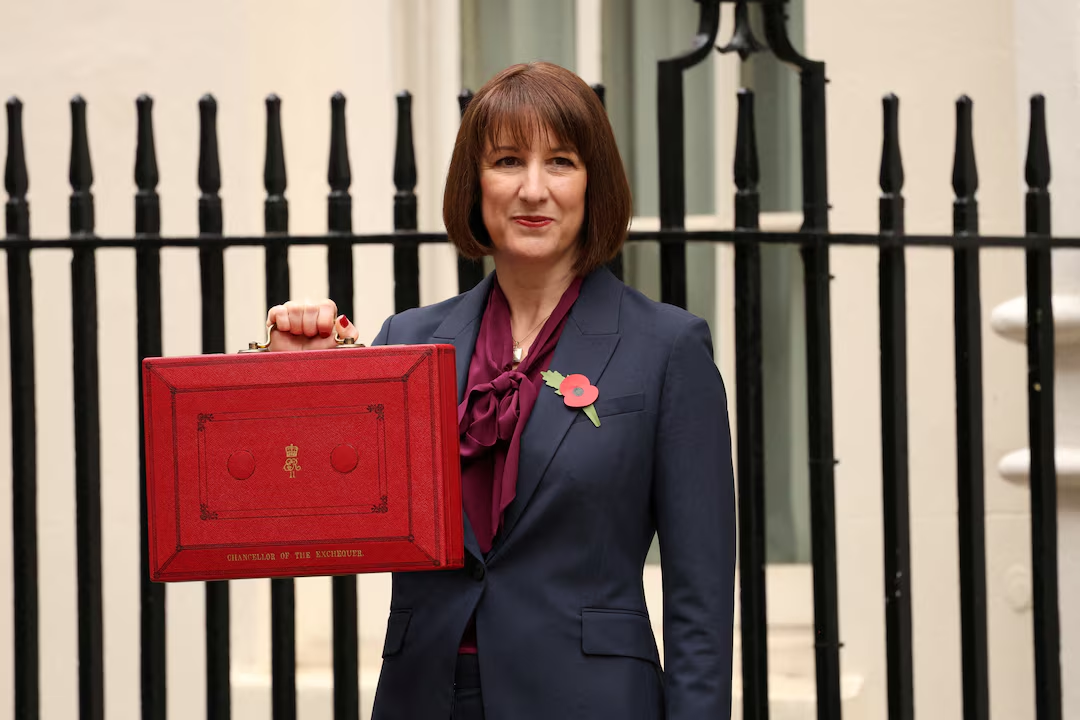The upcoming UK budget carries significant weight because it arrives at a crucial intersection of economic stress and political urgency. Persistent cost-of-living challenges, soaring government debt, slowing growth, and wavering investor confidence have put financial markets on alert. A single misstep in fiscal planning could impact borrowing costs, investment flows, and the overall stability of the British economy.
The budget is not merely a financial document this year—it is seen as a confidence-building tool that must:
- Reassure global investors
- Provide relief to households
- Support businesses affected by inflationary pressures
- Maintain fiscal responsibility
- Anchor long-term economic growth
With so many moving parts, the stakes are undeniably high.
Economic Context: What Is Driving the High Stakes?
To understand the anxiety in UK markets, one must examine the economic backdrop shaping the government’s decisions.
Inflation Pressures
Although inflation has gradually cooled from its peak, it still remains higher than the Bank of England’s target. Elevated prices continue to affect essential goods, energy, and housing, leaving households with reduced disposable income.
Weak Growth Outlook
Economic growth forecasts remain subdued. The combination of falling productivity, declining real incomes, fragile business confidence, and post-pandemic disruptions has slowed momentum.
Rising Government Debt
The UK’s public debt has crossed significant thresholds. With higher interest rates, the cost of servicing this debt has surged, limiting fiscal flexibility in the budget.
Labour Market Shifts
The UK labour market faces:
- A shortage of skilled workers
- Rising wage demand
- An increase in economic inactivity
These factors contribute to inflationary pressures and complicate long-term growth planning.
Global Uncertainty
Geopolitical conflicts, supply chain disruptions, and energy market volatility are adding unpredictable layers of risk to the UK economy.
This macroeconomic environment makes the upcoming budget particularly critical for market stability.
UK Market Sentiment Ahead of the Budget
Market sentiment is currently cautious and reactive. Investors are acutely aware that the budget will shape key areas such as borrowing, spending, taxation, and investment incentives.
Bond Market Sensitivity
Government borrowing plans will directly influence gilt yields. Any aggressive spending could trigger a rise in yields, increasing borrowing costs.
Currency Market Volatility
The pound has shown signs of vulnerability. Markets expect a balanced approach—too much spending could weaken the currency, while excessive austerity could dampen growth forecasts.
Equity Market Concerns
From banks to retailers to energy companies, businesses are watching closely for:
- Tax changes
- Regulatory shifts
- Incentives for investment
- Consumer spending trends
Any unexpected announcements could cause sharp market reactions.
Investor Reactions from Previous Budget Missteps
Memories of past fiscal turbulence—including episodes of rapid market sell-offs—continue to shape cautious investor behaviour.
Key Focus Areas Expected in the High-Stakes Budget
Below are the central policy domains where the government is expected to focus its fiscal measures.
Taxation Reforms
The government faces the dual challenge of protecting public finances while stimulating economic activity.
Possible measures include:
- Adjustments in income tax brackets
- Corporate tax review
- Relief for small businesses
- Targeted incentives for innovation and manufacturing
The market will especially monitor whether tax cuts are planned and how they will be financed.
Cost-of-Living Support
Despite gradual improvements, households remain under pressure. Budget expectations include:
- Extensions of energy bill support
- Targeted relief for low-income families
- Housing and rental affordability policies
Consumers are hoping for meaningful interventions that ease everyday expenses.
Public Spending Strategy
Investors expect deeper clarity on:
- NHS funding
- Education reforms
- Defence commitments
- Infrastructure priorities
- Social welfare expenditure
A carefully calibrated spending plan will be essential to maintaining fiscal credibility.
Business and Investment Measures
To revive economic momentum, the budget may introduce:
- Enhanced capital allowances
- R&D tax credit expansion
- Support for new-age industries such as AI, green energy, and robotics
- Incentives for export-driven sectors
These policies would help boost long-term competitiveness.
Energy Policy
Energy remains a key challenge for the UK due to global price volatility. The budget may outline:
- Renewable energy investments
- North Sea exploration changes
- Energy efficiency initiatives for homes and businesses
Markets will be closely watching how the government balances environmental goals with energy security.
Housing and Real Estate
High mortgage rates and limited supply have created a housing affordability crisis.
The budget may address:
- Stamp duty reforms
- First-time buyer support
- Affordable housing programmes
The real estate sector expects regulatory easing to boost construction and sales.
Fiscal Responsibility: The Core Concern for Investors
With debt levels rising and interest payments becoming more expensive, fiscal discipline is crucial. The government must demonstrate:
- A credible deficit reduction strategy
- Clarity on long-term financing
- Constraints on non-essential spending
- Transparency in growth assumptions
Failure to align spending with sustainable fiscal paths could trigger market instability similar to previous financial episodes.
Potential Risks if the Budget Misses the Mark
If the budget fails to meet expectations, markets could react negatively. Key risk scenarios include:
Higher Borrowing Costs
Weak fiscal management could push gilt yields higher, raising the cost of borrowing for the government and private sector.
Currency Depreciation
A loss of confidence could lead to a decline in the pound, increasing import costs and worsening inflation.
Business Pullback
If confidence drops, companies may delay investment, hiring, and expansion, slowing economic growth further.
Public Backlash
Insufficient cost-of-living support could spark frustration among households facing ongoing financial strain.
The budget’s impact extends far beyond financial markets—it affects every layer of the economy.
Opportunities if the Budget Is Well-Executed
If the government delivers a well-balanced and strategic budget, significant opportunities could emerge.
Improved Investor Confidence
A strong, credible fiscal plan would encourage foreign investment and stabilize domestic markets.
Currency Strengthening
Balanced spending and pro-growth reforms could help strengthen the pound.
Business Expansion
Clear incentives and tax stability would encourage companies to invest, innovate, and hire.
Sustainable Growth Trajectory
If long-term policies are prioritized—such as infrastructure, skills development, and technology—the UK could build a more resilient economic base.
Long-Term Policy Themes Expected in the Budget
Markets also expect strategic reforms that extend beyond the next fiscal year.
Technology and Digital Innovation
The UK aims to position itself as a global leader in:
- Artificial intelligence
- Fintech
- Digital manufacturing
- Cybersecurity
- Data-driven industries
The budget may emphasise skills development, research funding, and digital infrastructure.
Green Transition
Sustainability remains a priority, with potential allocations for:
- Clean energy
- Electric vehicle infrastructure
- Carbon reduction technology
These policies align with the UK’s net-zero roadmap.
Social Welfare Modernization
Expectations include reforms to:
- Pension systems
- Labour market participation
- Education quality
- Healthcare digitization
Such policies can directly influence long-term productivity and social stability.
Political Implications of a High-Stakes Budget
The political landscape surrounding the budget is just as important as the economic one.
Public Expectations
Voters expect solutions to rising living costs and better access to healthcare and public services.
Opposition Pressure
Opposition parties are closely scrutinizing areas like taxation, welfare, and public spending, adding political risk to each policy decision.
Pre-Election Calculations
If elections are approaching, the budget could serve as an economic platform meant to attract public support.
Markets After the Budget: What to Expect
Reactions will likely unfold across multiple sectors:
- Currency markets will respond immediately
- Bond markets will analyse borrowing levels
- Equity markets will assess sector-specific benefits or risks
- Real estate markets will shift based on mortgage-related announcements
The immediate reaction will set the tone for the UK financial landscape in the coming months.











